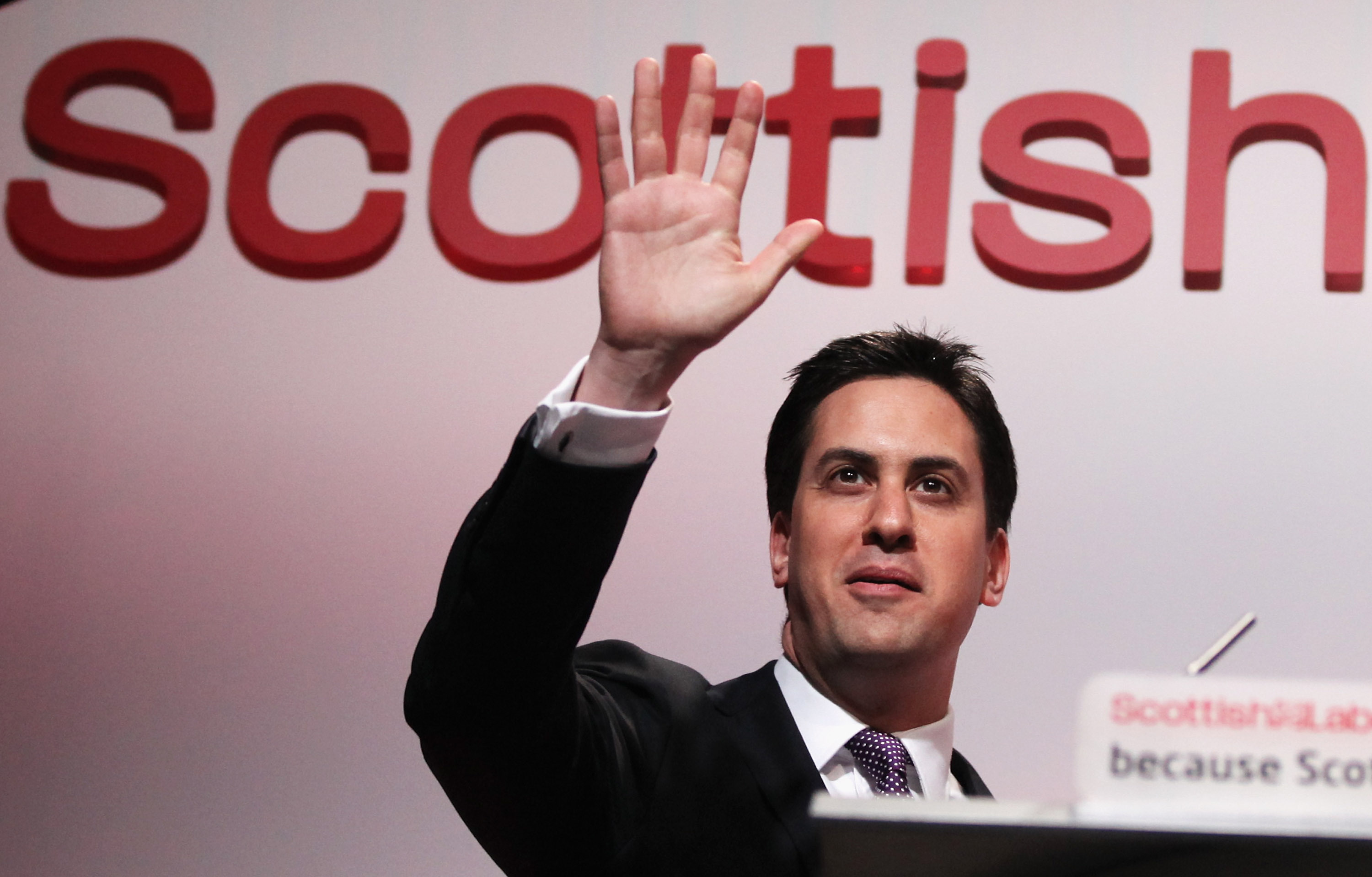 Of all the election results due in on Thursday night, those for the Scottish Parliament
may be the most significant. Labour’s Scottish base, which has been the party’s bedrock for almost 50 years, seems to be dissolving.
Of all the election results due in on Thursday night, those for the Scottish Parliament
may be the most significant. Labour’s Scottish base, which has been the party’s bedrock for almost 50 years, seems to be dissolving.
Two more opinion polls yesterday gave details. One, in the Mail on Sunday in Scotland, gave the SNP a ten point lead on the constituency vote and a six point lead on the list vote: this would give the Nationalists 62 seats to Labour’s 51.
With the Greens on course to pick up three seats according to the Progressive Opinion poll, Alex Salmond would have enough votes to hit the magic 65 he needs for a majority to pass his independence referendum bill.
The second poll, by YouGov for Scotland on Sunday, gave the SNP a narrower lead: eight points on the constituency vote and two points on the list vote. This would give the SNP 55 seats to Labour’s 48 — still comfortably enough for Salmond to remain First Minister and deny Ed Miliband the Scottish comeback that many had been taking for granted only a few weeks ago.
For Labour, the postmortem has already begun – with Labour Uncut publishing a particularly scathing assessment here. But is it too early for the obits? Party insiders tend to believe the YouGov poll more than the Progressive Opinion one. There is a feeling that the SNP will win the election, but with an eventual margin of about seven seats — not the 11 or more suggested by other polls.
The YouGov poll has actually caused a buoyant mood in SNP headquarters. They were worried that the succession of polls which gave the Nationalists a commanding lead over Labour would lead to complacency and keep some Nationalist supporters at home.
Now, though, the race looks on again — which means they should have less trouble getting their vote out.
But that hasn’t been all the bad news for Labour. No fewer than four Sunday newspapers backed the SNP, in various ways. The News of the World, The Sunday Express, Scotland on Sunday and The Sunday Herald all came out in favour of Mr Salmond as First Minister. The NotW was amongst this curious breed of unionists-for-Salmond: they’re against independence (as are most Scots) but support the SNP as the best party to govern within the union.
The Nationalists have also started wheeling out big name backers too. Business entrepreneur Sir Tom Farmer, former Scotland football manager Craig Brown, Audrey Baxter of the Baxter Food Group and rising star actor Martin Compston have all declared themselves supporters of Mr Salmond’s re-election plan in the last few days.
Labour’s problem is that it has been totally out-played in this election campaign. It’s anti-Tory message, blended with its dewy-eyed promise of a return to large-scale industrial apprenticeships and full employment just didn’t ring true.
It is the SNP’s claim that it would move Scotland forward to a new era based on renewables, an industry which would not just power the country, but provide the jobs and an industrial base too, that appears to have struck more of a chord with voters. The SNP’s message was seen as modern and forward-thinking, Labour’s as old-fashioned and backwards looking.
Last-minute appearances by Labour heavyweights like Ed Miliband and Ed Balls may have solidified the traditional Labour vote, but that hasn’t been Labour’s problem.
The party’s traditional voters will turn out and back it on Thursday. But all those disillusioned Lib Dems who want to protest about their party’s coalition deal and all those middle-class Scots who cannot bring themselves to vote Tory, those voters seem to be going over to the SNP.
Those are the voters Labour needed to win this election. Those are the voters the party has failed to persuade.
When John Reid was asked why there were so many Scots in the Labour frontbench, he’d reply that the party was cut back it its heartlands in 1983 and 1987, so the leaders in 1992 had — by definition — to come from some pretty safe Labour territory. We will see on Friday if Scotland still comes under that category.







Comments